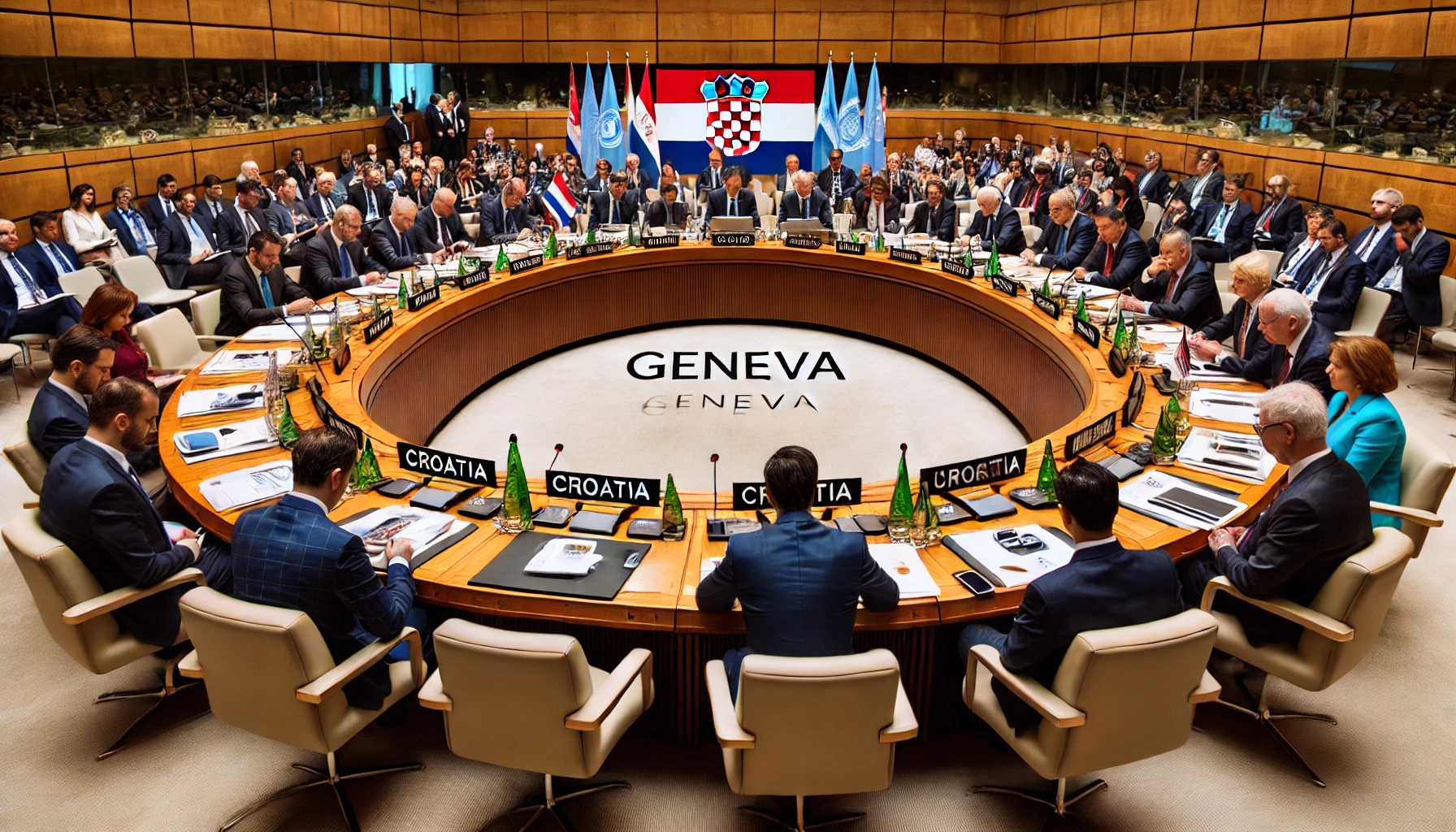Croatia Commended for Anti-Discrimination Efforts Amid Concerns Over Migrant Worker Exploitation and Social Benefits
Mr. Vidiš emphasized the State’s commitment to human rights, citing the National Plan for Human Rights and Anti-Discrimination as a key strategy for addressing inequalities.

The Committee on Economic, Social and Cultural Rights (CESCR) has concluded its review of Croatia’s second periodic report under the International Covenant on Economic, Social and Cultural Rights. While the Committee praised Croatia’s legal framework and national action plans against discrimination, it raised concerns over the exploitation of migrant workers and the adequacy of social assistance benefits.
Commendations and Concerns Raised
Karla Vanessa Lemus de Vásquez, Committee Expert and Lead Member of the Taskforce on Croatia, welcomed Croatia’s comprehensive anti-discrimination law and the adoption of the National Plan for the Protection and Promotion of Human Rights and Anti-Discrimination, which runs until 2027. This plan aims to coordinate the efforts of State administration bodies and promote awareness of human rights and equality.
However, Committee Expert Joo-Young Lee highlighted troubling reports concerning the treatment of migrant workers in Croatia. These workers often face poor working conditions, including non-payment for work, lack of breaks, and absence of formal employment contracts. Ms. Lee queried the delegation on specific measures taken to address these issues.
Further concerns were raised regarding the social welfare system. Ms. Lee pointed out that social assistance benefits were reportedly insufficient to cover the cost of living, and questioned the recent decline in the number of benefit recipients. She also inquired about the rationale behind requiring some beneficiaries to participate in community service.
Croatia’s Response to the Committee
Ivan Vidiš, State Secretary at the Ministry of Labour, Pension System, Family and Social Policy, led the Croatian delegation and presented the report. He highlighted recent national achievements, including Croatia’s accession to the Schengen Area and the adoption of the euro as the national currency in early 2023.
Mr. Vidiš emphasized the State’s commitment to human rights, citing the National Plan for Human Rights and Anti-Discrimination as a key strategy for addressing inequalities. Regarding migrant workers, he stated that Croatian labor laws grant third-country nationals the same rights as domestic workers. He also pointed to the new Act on Combatting Undeclared Work, which mandates that employers pay six months’ salary and fines to unregistered workers.
On social benefits, the Croatian delegation explained that the reduction in the number of recipients of the guaranteed minimum benefit aligns with declining unemployment rates. The minimum benefit has been increased three times in recent years, and the newly developed Social Welfare Act aims to further enhance these benefits. Importantly, the Act will provide exemptions from community service for individuals unable to participate.
Concluding Remarks and Future Steps
In her concluding remarks, Ms. Lemus de Vásquez thanked the Croatian delegation for its transparency and the detailed information provided. She emphasized the Committee’s goal of ensuring the full realization of economic, social, and cultural rights for all individuals in Croatia.
Mr. Vidiš reiterated Croatia’s dedication to addressing challenges openly and proactively, stating that economic, social, and cultural rights are central to the country’s policy efforts. He expressed gratitude to the Committee for its constructive dialogue.
Committee Chair Laura-Maria Craciunean-Tatu also thanked the Croatian delegation for its cooperative approach. She expressed hope that Croatia would address the forthcoming recommendations with a constructive spirit.
Delegation and Session Details
The Croatian delegation included representatives from various ministries, such as Labour, Pension System, Family and Social Policy; Physical Planning, Construction and State Property; Science, Education and Youth; Human Rights and Rights of National Minorities; Finance; Employment Service; Interior; Health; Environmental Protection and Green Transition; Foreign and European Affairs; Justice, Public Administration and Digital Transformation; and the Permanent Mission of Croatia to the United Nations Office at Geneva.
The Committee’s seventy-seventh session will continue until February 28, 2025. All relevant documents, including State reports and session details, can be accessed on the Committee’s official webpage. Webcasts of the sessions and meeting summaries are also available online.
- READ MORE ON:
- Croatia










